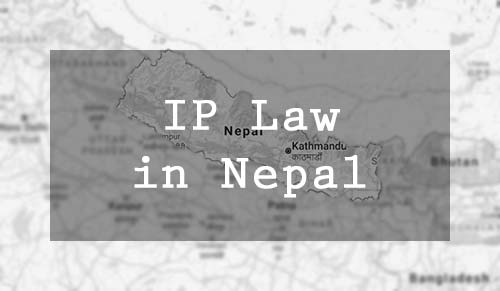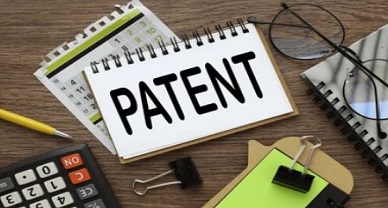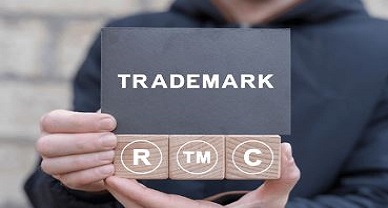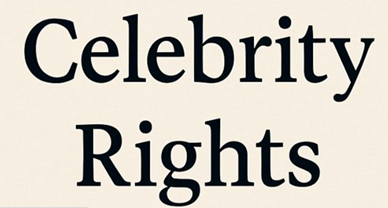Nepal’s IP Law: An Encapsulation

Trademarks
Section 2: Definitions: Unless the subject or the context otherwise requires in this Act:
“Trade-mark” means word, symbol, or a picture or a combination thereof to be used by any firm, company, or individual in its products or services to distinguish them from the product or services of others.
FILING PROCEDURE:
Step 1: Filing
-
Who may apply: Section 17:
-
Any person desirous to register the trademark of his business shall submit an application to the Department in the format specified in Schedule 1(C).
-
Document: Four specimens of the Trade Mark sought to be registered.
-
Fees: NPR 2000.
Trademark Application in Nepal can be filed in a single class only. A multi-class application cannot be filed.
Step 2: Investigation:
- Section 18: When an application is received by the department, it conducts the necessary investigation/examination and provides an opportunity of being heard to the applicant in case of any concerns/objections.
- The examination is done with regard to distinctiveness, the possibility of distinctiveness, and conflicting trademarks.
Step 3: Grant/ Refusal:
- If the department is satisfied with the application for registration, it shall register the trademark in the name of the applicant and grant him a certificate. Registration fees: NPR 5000.
- It may conduct further inquiry/ investigation.
- The mark shall not be registered/ registration is liable to be canceled when the subject mark:
- Hurt the prestige of individual/ institution
- Adversely affect public conduct or morality
- Undermine the national interest
- Undermine the reputation of another’s trademark
- Found to have already been registered in the name of another person.
- If the registered trademark is not used within 1 year from the date of registration, the department may cancel the registration after conducting necessary inquiries.
- The term of the registered trademark shall be 7 years from the date of registration.
Step 4: Publication:
- Section 21A: The department shall publish the trademarks registered under section 18. Such publication is made in the Trademark Journal.
- Anyone who has any objection to the same shall file a complaint to the department within 3 months from the date of such publication in the Trademark Journal.
- Necessary actions shall be taken by the department after conducting inquiries.
Step 5: Renewal and Cancellation
- Renewal: Section 23B:
- A trademark holder needs to renew the registration within a period of 35 days from the date of expiration of the term for which he is entitled to use the same.
- The prescribed form is Schedule 2(F) and the fee is NPR 500 each time.
- When the time limit of renewal expires, renewal may be done within 6 months from the date of expiry of the time limit for the same along with a fee of NPR 1000.
- A trademark can be renewed indefinitely for a period of 7 years each time after payment of the renewal fee.
Patents
Section 2: “Patent” means any useful invention relating to a new method of process or manufacture, operation or transmission of any material or a combination of materials, or that made on the basis of a new theory or formula.
FILING PROCEDURE:
Step 1: Filing:
- Who may apply: Section 3 and 4:
- Any person desirous of having any patent registered in his name shall submit an application to the Department in the format prescribed in Schedule 1(A) containing the following particulars, along with all evidence related to the same in his possession:
- Name, address, and occupation of the inventor (person inventing the patentable subject matter)
- If the applicant is not the inventor, then information as to how and in what manner has he acquired title thereto from the inventor
- Process of manufacturing, operating, or using the patent
- If the patent is based on any theory or formula, then the same needs to be mentioned.
- Maps or drawings, if any.
- Application fees: NPR 2000
Step 2: Investigation:
- Section 5: On receipt of an application for registration, the Department shall conduct all investigation or study to ascertain two things:
- Whether the patent claimed in the application is a new invention or not
- Whether it is useful to the general public or not.
- Section 6: The Department shall not register any patent under this Act in the following circumstances:
- In case the patent is already registered in the name of any other person, or
- In case the applicant him/herself is not the inventor of the patent sought to be so registered nor has acquired rights over it from the original inventor, or
- In case the patent sought to be registered is likely to adversely affect the public health, conduct or morality or the national interest, or
- In case it is contradictory to the prevailing laws (the registration of the patent) will constitute a contravention of existing Nepal law.
- The Examination/Investigation is of two kinds namely;
- Formality Examination- It is done to determine whether the application for patent fulfills the requirements of the same.
- Substantive Examination- It is done to determine the patentability of the invention, whether;
– The claimed product/process is patentable or not.
– The claimed invention is new i.e passes the test of Novelty.
– The claimed invention is capable of Industrial Application.
– The invention involves an ‘innovative step’
Step 3: Grant/ Refusal:
- If the Department is satisfied with the findings under Section 5, it shall register the patent in the name of the applicant.
- In case, the Application does not fulfill the statutory requirements, a notice to the applicant is sent regarding the Rejection of Application.
- Section 7: Issue of registration certificate:
- When the registration of the patent is granted, the Department shall issue a certificate of registration in the name of the applicant in the format prescribed in Schedule 2(A).
- The fee for the same is NPR 10,000.
- Section 8: The term of the patent granted shall be 7 years from the date of registration.
Grounds of refusal/ cancellation of registration: Section 6:
- The patent is already registered in the name of another person
- The applicant is not the inventor of the subject matter of the patent and has not acquired rights over it from the original inventor
- The patent sought adversely affects public health, conduct or morality, or national interest
- The patent sought is contradictory to existing Nepalese laws.
- The applicant will be provided a reasonable opportunity of being heard before the department cancels the registration of the patent.
Step 4: Publication:
- Section 7A: All patents registered under the Act, except those that are kept secret in the national interest, shall be published in the Nepalese Gazette by the department.
- In case of objections, the complaint may be filed within 35 days from the date of seeing or copying the Patent, and thereafter, the Department shall conduct necessary inquiries and take further action. The fee for complaints and objections is NPR 1000.
- In case anyone wants to see or copy the particulars, maps, or drawings of a patent, he can do so by paying the prescribed fee of NPR 750.
Step 5: Renewal
- Section 23B: Renewal:
- A patent holder shall renew the registration within a period of 35 days from the date of expiration of the term for which he is entitled to use the same.
- The prescribed form is Schedule 2(D) and the fee for
- First time: NPR 5000
- Second time: NPR 7500.
- When the time limit of renewal expires, it may be done within 6 months from the date of expiry of the time limit for the same along with a fee of NPR 1000.
- A patent can only be renewed twice for a period of 7 years at a time.
Filing Convention Patent Applications in Nepal:
Nepal is a party to the Paris Convention since June 2001, an applicant desirous of filing a patent application in Nepal claiming priority from one or more convention countries based on the same invention may file such an application within 12 months from the date of the earliest priority. Pertinently, Nepal is not a member of the PCT (Patent Cooperation Treaty).
Designs
Section 2:
“Design” means the form or shape of any material manufactured in any manner.
FILING PROCEDURE:
Step 1: Filing:
- Who may apply: Section 12 and 13:
- A person desirous to register the design of any article manufactured or caused to be manufactured shall submit an application in the format specified in Schedule 1 (B) to the Department.
- The applicant shall also furnish four copies of such design and maps and drawings and particulars thereof.
- Fees: NPR 1000.
Step 2: Examination
This involves “Formality check” and “Substantive check” –
- Formality Check- An application is submitted to check if the statutory formalities and procedural requirements are fulfilled.
- Substantive Check- After the formality check, a substantive examination is carried out, weather ;
– There is the existence of a prior application or registration of the same.
– Such design will hurt the prestige or interest of an individual or institution or conduct of public or morality of undermining the national interest.
Step 3: Grant/ Refusal:
- Section 14: On receipt of the application filed by any person under Section 13, the Department shall register the design in the applicant’s name and issue a certificate of registration in the format specified in Schedule 2(A). i.e If it has passed the stage of Examination.
- In case, the Application is rejected, a Notice of Rejection is sent to the Applicant.
- Registration fees: NPR 7000.
- The term of a registered design is five years from the date of registration.
- Renewal: Section 23B:
- A design holder shall renew the registration within a period of 35 days from the date of expiration of the term for which he is entitled to use the same.
- The prescribed form is Schedule 2(E) and the fee for
- First time: NPR 1000
- Second time: NPR 2000.
- When the time limit of renewal expires, it may be done within 6 months from the date of expiry of the time limit for the same along with a fee of NPR 1000.
- A design can only be renewed twice for a period of 5 years at a time.
Step 4: Publication:
- Section 21A: The department shall publish the designs registered under section 14, along with their particulars of renewal or cancellation.
- Anyone who has any objection to the same need to file a complaint to the department within 35 days from the date of such publication.
- Post receiving the complaint, Department takes necessary actions after conducting inquiries.
Step 5: Renewal/ Cancellation
Grounds of refusal/ cancellation: Design is liable to be refused or canceled, if the design or design registration, as the case may be:
- Hurt the prestige of individual/ institution
- Adversely affect public conduct or morality
- Undermine the national interest
- Found to have already been registered in the name of another person.
- The design holder will also get an opportunity to show cause as to why his registration must not be canceled.


